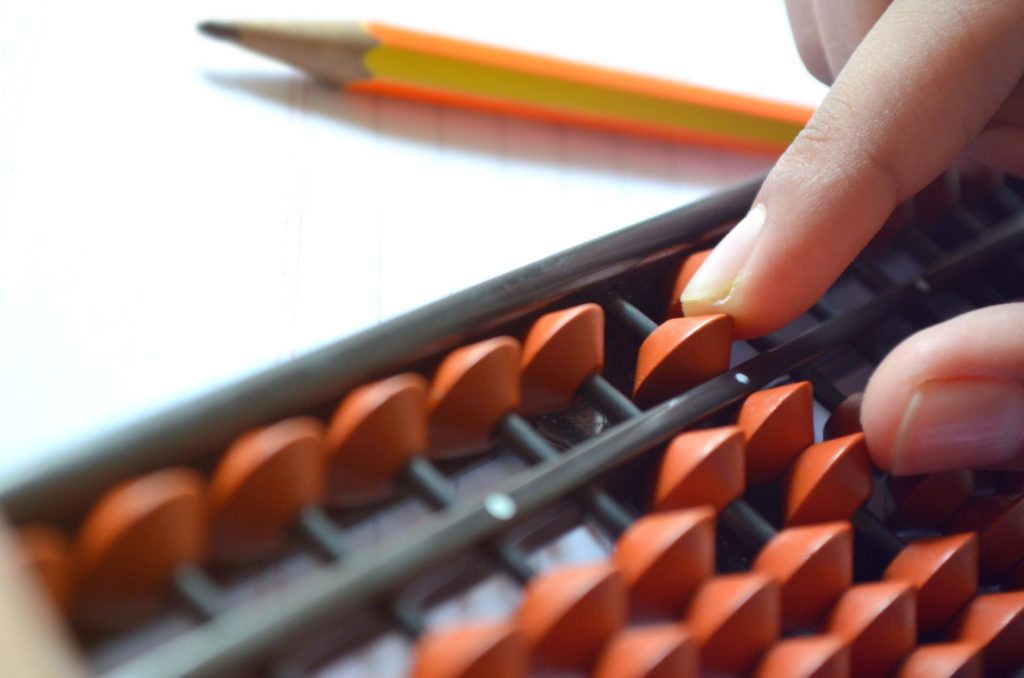One of the greatest reasons why students have problems with mathematics is because of basic concepts that the student didn’t understand earlier on, and this wasn’t dealt with when the misunderstanding developed. With a practical subject such as math, repetition and revision are key. Students that fall behind struggle to grasp new concepts and lose confidence in their abilities to do so.
Understand The Problem
In the field of mathematics, the problem might not be all-inclusive. Some students might excel in Geometry but struggle with Algebra. Break the subject of mathematics into categories (Algebra, Geometry, Arithmetic) and the individual concepts (equations, fractions, order of operations) and rate your capabilities accordingly. This will help you pinpoint the areas in where you might be struggling. Perhaps the way you study may also be an issue. If one method does not work for you, try switching things up and trying something new.
Students often place themselves in the “not math people” category before they even know that each math teacher teaches it differently, or that different topics in math draw on different skills. – The Atlantic, Education
Mathematics is Cumulative
The way in which we learn math follows a natural progression – we build on the knowledge that we’ve previously gained. Some students might be overwhelmed by the scope of Math in general and forget that they will be able to take a step forward if they take a step back. After all, the new material won’t make much sense if you don’t understand the concepts that form the foundation for the new material.
To help your proficiency in math, it’s important to go over notes and practice problems from previous courses. Only once you’ve mastered a concept, you will be able to ‘level-up’. Students experience problems with the subject when they can’t keep up with this natural progression of learning math. Slowing down isn’t a bad thing, and sometimes it is the best option in order to understand the subject and jump ahead. This doesn’t mean that students who struggle with math will not be able to grasp the concepts or even excel in the subject. It just means they need to take a little more time understanding how the process works and practicing those skills.
Don’t Be Afraid of Making Mistakes
Practice does make perfect, but it’s the fear of failure that might be holding certain students back. Before getting into the technicalities of practicing math, you have to get into the right mindset. With math problems, you will make a lot of mistakes before you find the solution to each problem.
See mistake-making as a part of the process and not something that you are ‘graded’ on. Your mistakes will also help you find which concepts you have the most trouble with.
Learn to Study On the Clock
Many students benefit from studying their Math material according to a set time limit. This will help you become comfortable with the time constraint involved in taking an exam. Maybe you don’t have any problem with math as a subject during the school year, but with the added pressure and stress of exams, you find yourself ‘blanking out’.
For instance, if you have 40 minutes for a 50-question test, you will realistically be able to spend 48 seconds on a question. When studying, set your timer for 48 seconds per question and see if you can solve the problem within that time frame.
Use Apps and Puzzles
A great way to encourage a learner to study math is by introducing various methods of learning. Practicing your math skills doesn’t always have to be done in the traditional manner. There are various apps and games available that will allow you to build confidence in your math skills while having fun in the process.
- Chalkboard Math – This app gives students the opportunity to practice their skills in basic math in a quick and engaging manner. The student can choose the answer mode or flashcard mode during studies.
- DragonBox Algebra 5+ – Dragon Box Algebra 5+ is focused on developing algebra skills. The user can access different levels of difficulty and the interface is easy to use. The app has two versions, one for students aged 5-8, and another for 12+.
- Brainscape – This neuroscience-based app allows for students to create a study system that is tailored to their individual needs. The app supports various subjects, but high school mathematics is also one of them. Students can create their own flashcards which are ideal for studying.
Study Groups and Tutoring Sessions
Studying with others can be extremely useful, especially if you aren’t getting the focused attention that you need in class. When practicing math with your peers you can ask them to assist you in understanding certain aspects. This will also help you see the ‘problem’ and possible solution from a different angle.
Looking for independent math practice? Check out our math worksheets.
Tutoring is another great way to improve your math skills. A great tutor is knowledgeable about the subject you need help with and will be able to work according to your curriculum or adapt to focus on the specific concepts you struggle with. A tutor also provides the much needed one-on-one attention that students who struggle with Math need.
View our resources
Strive Resources | TpT | Made By Teachers | Classful | Etsy

